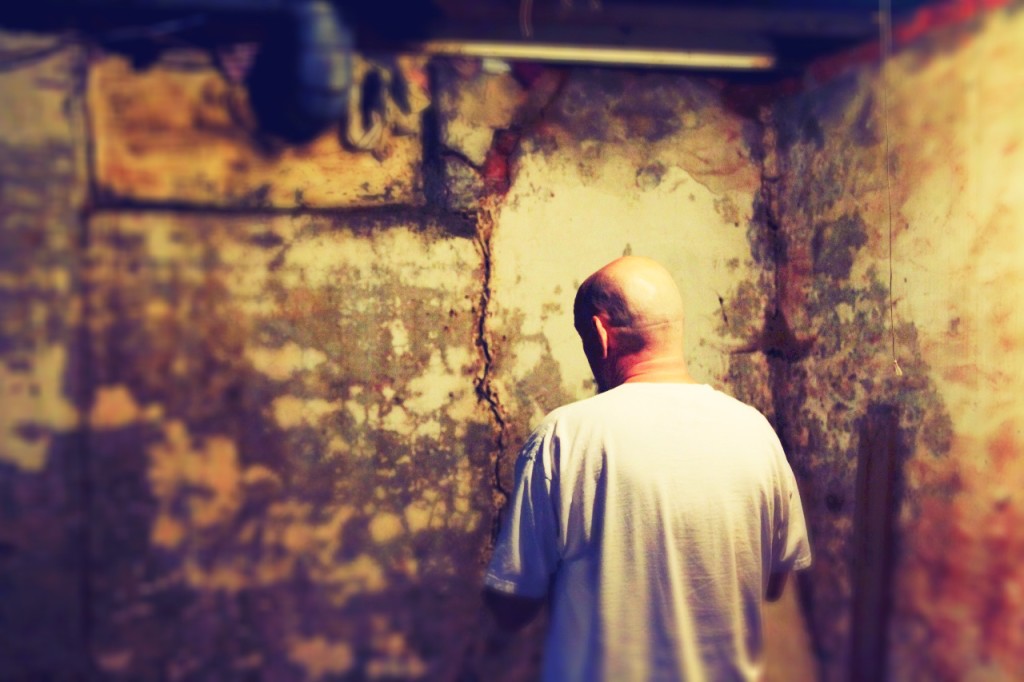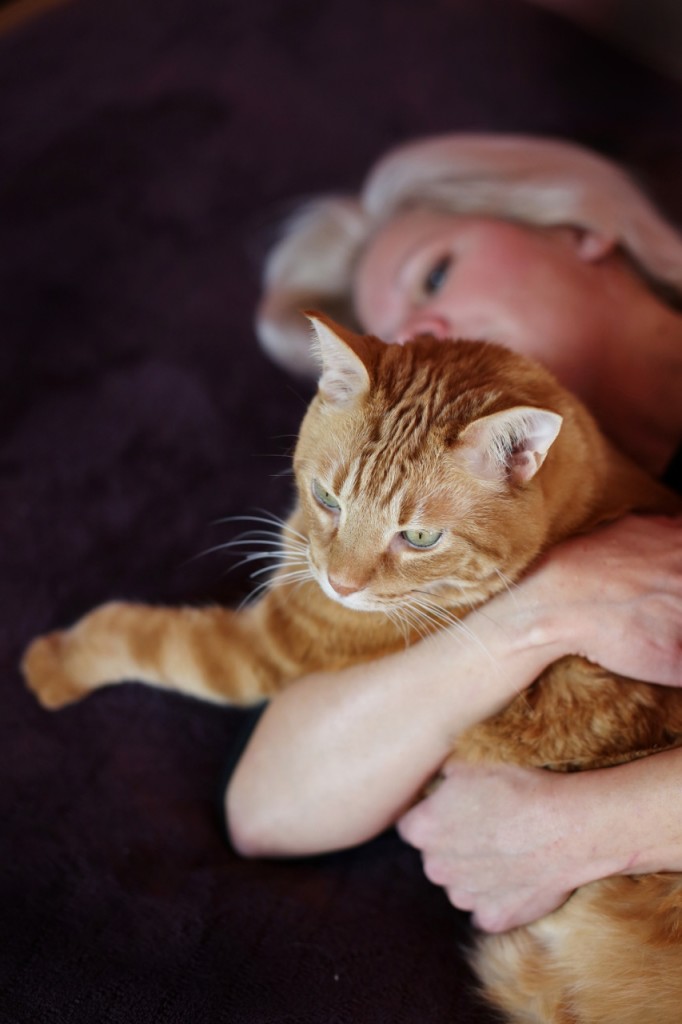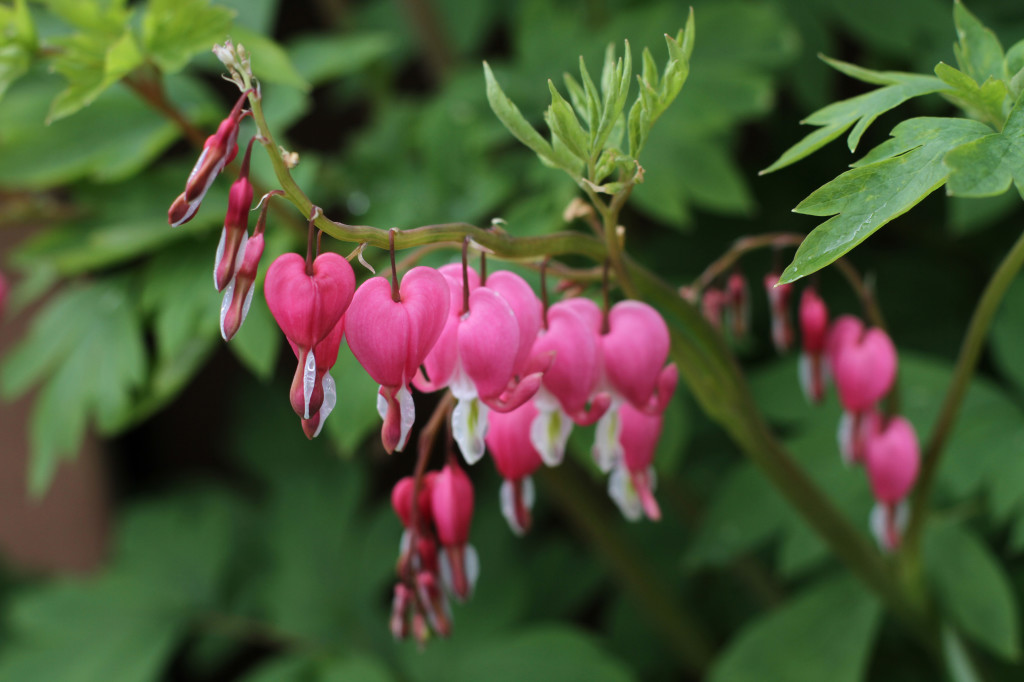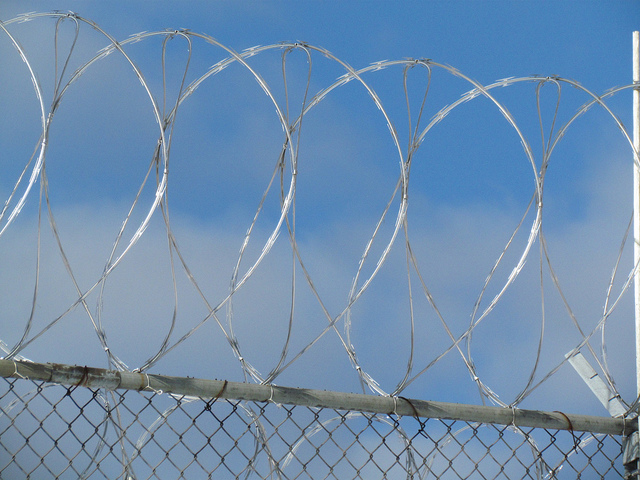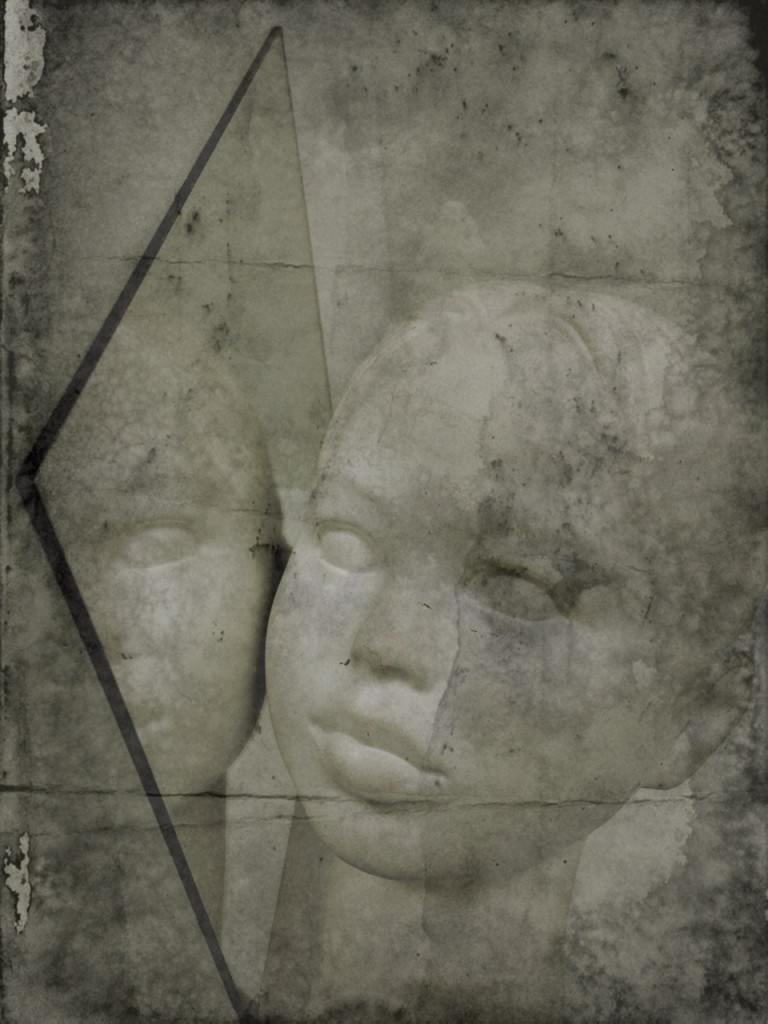
By D’Arcy Fallon
It’s supposed to rain. That’s the prediction. A hurricane sweeping northward, swiping an angry claw at the Midwest. I have a bad feeling as we drive to Forever Sports, the boat outfitter near the freeway overpass, nothing I can pinpoint specifically, just low-grade anxiety. I predict lightning. I predict marital discord. “I can see the newspaper headline now,” I tell my husband as he steers our car, Man O’ War, down the rutted dirt driveway to Forever Sports: “Newcomers zapped by lightning.”
A hot Tuesday morning, muggy and still, as if the world is holding its breath. We’re in the middle of the country, hundreds and hundreds of miles from either coast. We moved here a year ago after I took a tenure-track job teaching writing at a small liberal arts college in Southwest Ohio. Our teen-age son gone, out in Colorado visiting friends, I’m off for the summer, and Rudy has been job-hunting for the past year.
In between sending out resumes and going on interviews, he’s been restoring the old house we bought: stripping, scraping, sanding, painting. The bank repo is slowly evolving from a hopeless bag lady to a well-upholstered matron at a garden party. Renovating the house is hard, sweaty, solitary work. It’s dirty. And lonely. Not having a meaningful job has put Rudy in a deep, deep funk. Sometimes when we drive past Wal-Mart he says he ought to stop by, fill out an application. “Maybe I can be a greeter,” he joshes. But the joke is wearing thin. These days, asking him about his job prospects is like asking a woman trying to get pregnant if she’s ovulated that month. Our marriage is filled with these little bogs and shallow marshes, soft fleshy depressions where it’s easy to get stuck if we don’t watch where we’re going.
The boat place looks closed, although the sign on the door says Open. Rudy tries the door. Locked. He pounds on it. No answer. We’re already way too invested in the canoe trip, swept up in the idea of a sylvan day on the water. We spent the morning making the sandwiches, carefully zippering them into Baggies, filling the cooler with ice and beer and mineral water. I went to the supermarket for Georgia peaches and Cutter Deep Woods Bug Spray; then Rudy had to go for sunscreen. We are more than ready, over-prepared, in fact. I have a pen and my arty little seventeen-dollar black Moleskine notebook favored by famous authors like Ernest Hemingway and Bruce Chatwin. They’re dead and I’m not, and who knows, maybe inspiration will strike out on the river. After a walk around the building, we learn the front door to the barn is really the back door; a few quick steps and we’re inside, shaded from the sharp summer sun.
The cavernous barn is dark. Pool tables gather dust under ancient hanging lamps. For what feels like a long time we stand by the counter. Finally a kid in baggy overalls and tousled blond hair emerges out of the fungal gloom. He reminds me of what Dennis the Menace might’ve looked like as a grown up. That is, if Dennis had been raised in a basement by Mr. Wilson and fed through a trap door.
“Can I help you?” Dennis says, wiping his hands on a rag.
“We’re here to go canoeing on the Mad River,” I say. “We called earlier this morning.”
The kid just stares at me. He can’t be older than seventeen.
“We called,” I repeat again. “Someone said we could rent a canoe.”
He looks at me with suspicion. “Where exactly are you headed?” he says, stuffing the rag in his back pocket.
“We thought you were closed,” I say. So much sweat has pooled in my bra, I could wring it out. “The door was locked.”
“A lot of people make that mistake,” the kid says, clucking his tongue. Well, why don’t you put a sign on the door or something and help us all out? I want to say. Instead, I squint at the river map on the wall behind him, with its filaments of wiggly blue lines. There’s an arrow pointing to one of the lines and fuzzy words that say—I think—“You are here.” I can’t really read the map very well without my glasses, but if I put my prescription sunglasses on inside, Dennis will think I’m trying to look cool.
Last semester a student of mine in freshman composition, Kyle, a big goofy football player, wrote about all the Sasquatch sightings along Ohio’s Mad River for his big research paper. Five people in Donnelsville, a small town several miles downriver from Forever Sports, had reported seeing a huge hairy biped that “looked in their window,” according to Kyle. Kyle’s source? A Mad River Sasquatch “study” he found on-line, which included blurry photos of a strapping creature with a muscular, naked backside. During his Power Point presentation to the class, everybody laughed, Kyle especially.
But staring at Dennis standing at the counter with a sullen expression on his face, I wonder if he knows something I don’t. Everything this morning seems to hint at disaster; it’s like watching a science fiction movie where you already know the planet is doomed. The clues are everywhere: razor-cut crop circles, genetically altered locusts, cow mutilations. Woo-woo. Bad mojo. Honestly, I’d just like to call it a day. It is going to rain. The sandwiches are already soggy. But I won’t give Dennis the satisfaction. Wilted seconds tick by. There’s no air conditioning in the barn; the air is as moist as a frog’s belly.
Instead, we pay the kid, surrender our drivers’ licenses and settle into the back of a rusty Ford Econoline van pulling a trailer stacked with dented canoes. Dennis is at the wheel. We’re heading for Champaign County, just north of us, where we’ll put in at Millerstown Crossing. Paddling—or floating—back on the Mad River should take about five hours, the kid says, looking at us point blank in the rear view mirror.
“Yippee,” I mumble, staring at the cowlick on the back of his head.
The clouds are starting to pile up. Sweat streams down my forehead. I glance over at Rudy. He’s gazing out the cornfields, lost in thought.
“Do you think it’s going to rain?” I ask Dennis, just to see if he’s capable of making small talk.
He nods his heads and says, a trifle too gleefully, “Oh, we’re definitely going to get some.”
The Mad River. I like that name. It reminds me of how Lady Caroline Lamb described her lover, Lord Byron: “mad, bad, and dangerous to know.” That gives this baby-sized river a thrilling frisson, an aura of danger when in truth it’s lazy and safe, a whisper instead of a roar.
“Have you ever canoed the Mad?” Rudy asks.
“Nope,” the kid says, and the word is flat, flat as the ripe green cornfields and the black road before us, flat for as far as the eye can see.
At Millerstown Crossing, Rudy and the kid lift the canoe from its rack while I grab the heavy green cooler from the van and frog march it down to the river. The kid waits as I put on the moldy-smelling orange life vest and fumble with the rusty latches. Then I step clumsily into the boat. It wobbles with my spasmodic movements.
“Careful there,” Rudy says as I flail. “Watch the first step.” I shoot him a dirty look.
The kid lingers on the shore. I feel his eyes boring into our backs. What does he see? Two paunchy fifty-ish geezers out for a suicide run on Ohio’s sleepiest river? Does he see it all—as I do—as the prelude to some terrible accident? Is there something he wants to tell us? Watch out for Sasquatch? But no, he’s one of the Children of the Corn, a slit-eyed zombie in on the secret. Then Rudy steps into the boat. Metal scrapes across the rocks. The boat pops and creaks; it’s like God cracking his knuckles.
There are all kinds of theories about who should sit where in a two-person canoe. The person at the bow is supposed to be on the lookout for danger ahead: branches, rocks, anything that will swamp you. This person must “read” the water. The person at the stern is the one who really steers though, the one who has the muscle and power to set the course. I’ve never been in a canoe but honestly, how hard can it be to navigate one?
“Do you see that V on the surface of the water up there?” says Rudy, who is sitting in the stern. “If it’s facing you that means—”
“Aye, aye, your majesty,” I say, cutting him off. “Anything else I should know?”
He sighs. Five hours is a long time to be in a boat with just one other person, even if it’s someone you love. It can be forever, or at least an exceptionally protracted day. So what are we doing out on an eight-inch river in the middle of scalding July?
On our very first date—at a Bob’s Big Boy restaurant in Long Beach, California—Rudy earnestly talked about the float trips he’d taken in rural Missouri. Lazy and slow, wild and fast, beer-drenched, sunburned, alone and with friends. Ah! The pull of the river! He talked of stories told around the campfire, friendships forged over sweaty, mosquito-slapping portages. A river trip is a test of character, he said. I looked at him over my coffee and thought, wow, sweet and deep. He was new to California, out visiting a buddy who worked at the same newspaper I did. Missouri had always sounded like Squaresville to me, someplace I’d never wanted to visit, but Rudy painted it with dogwoods and rolling hills and jagged limestone bluffs. As he talked, I saw eagles drifting on the thermals above a wide rippling river and felt the sun on my back. You’ve got to see the Show-Me State, he said and grinned. I smiled into my coffee. I wanted to be shown.
That was years ago, when we were in our thirties. Since then, we’ve lived in San Francisco and Marin County, places so precious, I used to worry about getting pulled over at the Golden Gate Bridge toll booth for not being rich or pretty enough. There’s no border patrol like that in Springfield, Ohio, a small, unpretentious, blue-collar city. I’ll admit I’m still getting to know my way around Springfield, which has a Bob Evans restaurant and a J.C. Penney, but not a Starbucks or a Barnes & Noble. It’s easy to dismiss a town like Springfield until you’ve lived there. Then you need to learn to seek charm and allure with new eyes. Beauty is everywhere if you’re invested enough in finding it.
The river is practically deserted, except for a couple of men in thigh-high waders fishing for brown trout. I’m sitting in the bow, dutifully scanning the river’s surface, on the lookout for rogue rocks and sunken logs. Passing the men with their poles, we wave. The breeze picks up. We drift under a canopy of dappled green. The trees shake, branches flutter, leaves twirl. A crane flaps overhead and lofts gracefully into a tree. A cardinal calls. Cicadas chir. A big catfish swirls past. Summer in Ohio. I take off the stinky lifejacket and ceremoniously toss it in the back with an extra snap of my wrist, as if I’ve just flung off the top of my bathing suit. How’s that for a show-me-state? I tell myself, trying to quell the anxiety bubbling through my veins.
Our son’s absence reminds us of what’s soon to come: his leaving home more or less for good next year. When he leaves for college, it will just be the two of us, somebody steering the boat, somebody scouting what’s just ahead, paddling, reading the current. We’ve come so far since the morning of his birth, when, after thirty-three hours of labor, the doctors cut him out of me. I remember Rudy holding our wailing son and crying, for Joel, for himself, for the father he wanted to be, and for the one he didn’t have. His own father had virtually vanished after Rudy was conceived, forsaking my mother-in-law for another woman. Later, he was hardly a presence, just another guilty dad showing up on Friday night with the child support check. Rudy held Joel as if he was holding his own infant self, vowing to do better, to be a man, to show up, to be there. It seemed like he never let our son go during that first bleary week I spent recovering from the C-section. Birth had hollowed me out; barely sutured together, I moved gingerly, afraid the rawness of my love would rip me open. The scar across my abdomen has morphed into a hard, upraised line, more of a grimace than a smile. Underneath, I still feel vulnerable, and sometimes, barely together.
But on the water, it’s easy to forget those fumbling, foggy parental years, of trying to be selfless and failing miserably, of wanting to set boundaries and then trampling all over them, of yearning to be good or at least, good enough. I tried too hard as a mother and then sometimes I didn’t try at all, escaping into bed with a novel and a plate of cheese and crackers. The boat eases down the river under our gliding paddles. Sun strobes on the water. Stroke, stroke. It is not going to rain after all. In fact, it’s a steam bath. Blue, the sky is blue and stretches into a seamless bolt of turquoise silk. Stroke. I’m getting sunburned. Rudy and I talk about nothing. We don’t talk about the job search, or how heavy and oppressive time can feel when waiting for something big to break. Stroke, drift, stroke. We return to a familiar topic, a novel he wants to write, based on a woman he once knew who went to a party where she met a man. She left with him—and nobody ever heard from her again. Her body was never found. We talk about plot, motivation, and character. Does he know the ending yet? Was this woman murdered or did she just wander away?
Write it, I tell him. Quit talking about it and do it.
Rudy takes a deep breath. “It looks like I’m going to have the time now to write,” he says slowly. And there it is, out in the open. I swallow hard. There are so many things I want to tell him: We’re in this together. I love you. Don’t worry. You’re a good man. I take a breath, prepared to say all those things. Instead, what comes out is “Oh, honey.”
We were married in 1984, which, even in the middle of that crazy year’s unfurling, seemed full of portent. This was the year Michael Jackson’s hair ignited during the filming of a Pepsi commercial, the year scientists finally isolated the virus that causes AIDS, the year of Geraldine Ferraro’s nomination as the first female vice presidential candidate. It was also the year I borrowed my sister-in-law’s wedding dress and her backyard for a wedding under the unflinching California sun. This was years before expensive wedding planners came into vogue, before every moment of one’s wedding had to be stylized and burnished and curated to look like a spread in Martha Stewart Weddings. Halfway through the ceremony, our Old English sheepdog casually lifted his leg and urinated on the floral arrangement, which was really just a bouquet of daisies tied to a trellis, and afterwards, the best man’s wife got drunk and changed into a long flannel nightgown and wandered down to the bay. It was a cloudless day at the end of August and the hills were as brown and dry as Shredded Wheat. One woman, a very big woman, stripped down to her leopard-skin bikini and took a dip in the chilly tidal estuary across the street from the house, and my mother-in-law broke down and cried her heart out. I never found out if the two were incidents were related. I was wearing a colander on my head at the time and distracted by cheap champagne and gaiety and I failed to write down all the wedding gifts that had been given, and to this day I know that I have neglected to write all the thank-you notes I should have. I hope I’m forgiven. We were oblivious back then. We felt lucky. We were lighthearted and life lay before us and we were never going to get old or blow it or look back.
The wind has come up on the Mad River. Clouds swallow the sun. It’s going to rain. We’re screwed. Lightning can’t be far behind. We’ll fry on this river. Somehow this foreknowledge doesn’t even register, nor does the sign we pass, a sign that says emphatically, in no certain terms: “Take Out.” Accompanying the sign is an arrow pointing to a path by the shore.
“I wonder what that means,” I say idly.
“It’s probably a place for people who want to get off the river.”
“Or maybe that’s where you go if you want to order Chinese,” I say.
“Ha, ha,” Rudy says.
We float on fifty more yards. For the first time, we hear rushing water. This part of the Mad is a Class One river, a baby river, a moving puddle, so why should there be rapids? Suddenly a distant bell goes off in my mind and I get it. “Take Out” means what it says. Take yourself out of the damn equation. Get off the damn river. Skedaddle. Scoot. My god, we’re going to go over, we’re going to—
“We’re going to capsize!” I shout. Oh god, god, this is like a bad novel, one of those freak newspaper stories. Headline: “Couple drowns in two feet of water.”
“Just go with it,” Rudy says. “It’s too late now.” As if to underscore his point, thunder rumbles in the background as we teeter over on a low head dam.
There’s the rushing of the water and the point of no return, we’re falling, going over, we’re going to fly over that froth. Then there’s the sickening sound of the canoe bottom scraping across metal. We see-saw over the edge. Crunch! The bow noses down as if to nuzzle the river, then rears back like a Praying Mantis. We’re just too heavy to get over the dam. Rudy tries to rock us over the edge and with every motion the boat sways from side to side. I scrabble like a crab, ass-walking down the spine of the boat, trying to find the center of balance.
“Hold still,” my husband says, rocking back and forth. “Don’t move.”
In other circumstances, those words can be the passenger pigeons of desire, carrying an erotic promise: hold still, don’t move. But now they’re infuriating. Don’t move? My coccyx is gravel and you’re telling me, don’t move?
“We’re stuck!” I shout over the bawling of this shrunken little river. ”Stuck, stuck, stuck!” The word flies back at me, reminding me of the scene in the movie A Christmas Story, when nine-year-old Flick puts his tongue on the flag pole, and it freezes. We’re stuck like that, glued in the eternal now, teeter-tottering between oh no! and holy fuck!
Rudy rocks once more time and we spit over the dam. Bloop! All at once we’re in the water, sputtering and blinking and flailing. And it’s cold and all our stuff is sailing down the river. There goes my virgin Moleskine notebook and the bug spray and the sunscreen, there goes the Budweiser out of the cooler. One can, two, three. Bottled water. Beach towels. A dozen velveteen peaches lovingly packed just two hours before are now released, fuzzy goslings learning how to swim. There go those cheap-ass mildewy life jackets.
“The paddle! Grab the paddle!” I shout.
“Good thing I packed that towel,” my husband says, spying it swirl away in the current like a drunken manatee.
“Let’s just hope the beer floats,” I retort. I lunge for my backpack and slip on a slimy, moss-covered rock. The river is much deeper and swifter than I’d figured. I’m completely under, baptized in the Mad. Coming up for air, I stagger towards Rudy. And laugh. We’re both punchy. We turn and stare at the overhead dam we just went over. No, it’s not Niagara Falls, but it is quite a drop. These dams, we’ll later learn, are called “drowning machines” because of the way the re-circulating currents can trap people and boats, but in the ebullience of the moment, we’re carefree. Yes, there’s a dam. Get over it. There is nothing to do but clamber back into the boat and try to beat the storm.
Downriver, we retrieve a life vest snagged on a tree branch, pluck the sunscreen from the water, and recover the beer. The wind comes up again, hard this time, stinging and stabbing and strangely invigorating. Go home, it says. Hurry. Rudy paddles on the left, I on the right.
Rain pocks the Mad’s surface, just a drop or two, then the sky opens and it’s a Biblical deluge, straight out of the book of Genesis. Should we stop and take shelter? We’re already drenched, soaked to the skin, mad, bad and dangerous to know. We’ve come this far already; there’s nothing to do but float. Still, I learn forward, eager for once to read the current and see what’s below. But I can’t discern anything except the rain. It plashes and patters on the surface, it zings and sings and stings. The river is running away from us, running with us, stretching and flowing and rearranging itself in a buoyant, irreversible sheet. There are no questions or answers, just silver water, tumbling over and under, cold and fast. Chilled and wet, miles from home, we put up our paddles and let it take us, forever sports.
•••
D’ARCY FALLON teaches creative writing, English composition, and journalism at Wittenberg University in Springfield, Ohio. She is the author of a memoir, So Late, So Soon, about living in a remote Christian fundamentalist commune in the early seventies. Before turning to teaching, she was an award-winning journalist, working for such newspapers as the Long Beach Press-Telegram, the San Francisco Examiner, and the Colorado Springs Gazette.

 Follow
Follow

